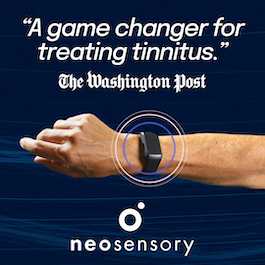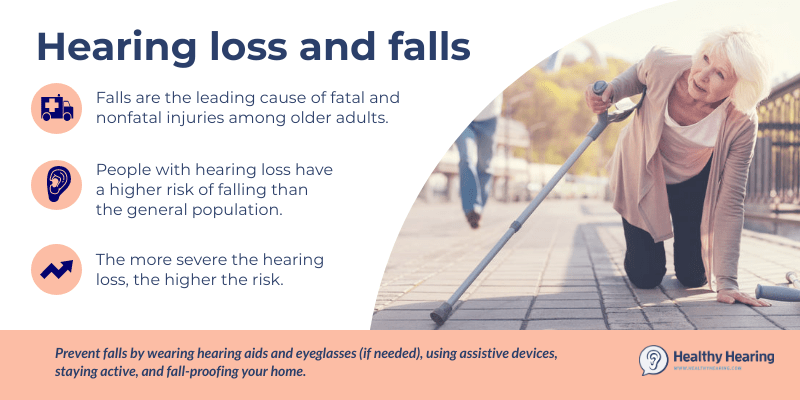|
www.HealthyHearing.com |
Osteoporosis and hearing loss often go hand-in-hand
Contributed by Joy Victory, managing editor, Healthy Hearing If you have osteoporosis or have low bone density, be sure to get regular hearing screenings. A growing body of research indicates that the two conditions are strongly linked. Most recently, a 2021 study published in the Journal of the American Geriatric Society showed that the risk of hearing loss was 40 percent higher in women with low bone density or osteoporosis. The study was a data analysis of 144,000 women who participated in the Nurses Health Study, which has been tracking health determinants for a wide range of conditions for many years. 
Interestingly, taking osteoporosis drugs known as bisphosphonates did not seem to lower the risk of hearing loss, but researchers said more data is needed before knowing the true impact. Osteoporosis occurs when bone is breaking down faster than the body can replace it, putting a person at higher risk of bone fractures. Anyone can develop it, though it's most common in Asian and white women. Hearing loss, meanwhile, is one of the most common conditions affecting older adults. Noise exposure is the chief risk factor, along with getting older. However, several health conditions including diabetes, heart disease and anemia can put a person at higher risk, but there are many other causes of hearing loss, too. Why are hearing loss and osteoporosis linked?Why might reduced bone density lead to hearing loss? Researchers don't know for sure yet, but it could be that the the tiny bones that are involved in hearing experience demineralization, meaning they become weak. As we explain in our primer on how we hear, these tiny bones are critical to hearing. Osteoporosis also may affect the bones that protect the nerves and structures involved in hearing, located within the cochlea. While more research is needed to understand the nuances of the connection, it's become pretty clear that the two are closely linked. Meaning: If you have low bone density, osteoporosis or a history of fractures, you are more likely to have hearing loss, too. This means it's important to get regular hearing screenings—the onset of hearing loss can be so gradual you may not notice it, and find yourself wondering why everyone keeps mumbling. The longer you wait to treat hearing loss, the harder it is to manage with hearing aids. Also you should reduce your noise exposure and be aware of important ways to prevent hearing loss. Sudden hearing loss also more commonThe connection doesn't end there. Although far more rare, sudden hearing loss is also more common in people with low bone density and osteoporosis, a 2015 Journal of Clinical Endocrinology & Metabolism study showed. Sudden hearing loss is exactly what it sounds like; hearing loss, usually in only one ear, that occurs all at once or in the span of a few days. Almost all sudden onset hearing loss is "idiopathic," meaning a cause is never known. But for the small number of cases in which a cause is determined, the link to osteoporosis is a significant finding. While the study couldn’t prove cause and effect, it did confirm a relationship exists between the two conditions. The theories about the onset of sudden hearing loss include cardiovascular or cerebrovascular involvement as well as bone demineralization, inflammation and endothelial dysfunction (problems with the lining of the blood vessels). Osteoporosis, falls, and hearing lossPeople with osteoporosis are more likely to have severe bone fractures if they fall. And people with hearing loss are more likely to fall. This means that a person who has both conditions should follow their doctor's recommendations and treat their hearing loss.
'Patients with osteoporosis should be aware'What this means for those with osteoporosis is that careful attention should be paid to their hearing health in addition to the health of their bones. Patients can and should advocate for themselves if their doctor doesn’t take the correlation into account. "Clinicians should not ignore hearing problems in osteoporotic patients. Likewise, patients with osteoporosis should be aware and inform their clinician if they suffer from suspected hearing impairment," said Dr. Kai-Jen Tien, with the Chi Mei Medical Center in Tainan City, Taiwan. Joy Victory, managing editor, Healthy Hearing
Related Help Pages:
Hearing loss Causes
|
Featured clinics near me
Hearing Health Solutions from Ohio ENT - Columbus
974 Bethel Rd Ste B
Columbus, OH 43214
Earzlink Hearing Care - Reynoldsburg
7668 Slate Ridge Blvd
Reynoldsburg, OH 43068


Find a clinic
We have more hearing clinic reviews than any other site!



 Joy Victory has extensive experience editing consumer health information. Her training in particular has focused on how to best communicate evidence-based medical guidelines and clinical trial results to the public. She strives to make health content accurate, accessible and engaging to the public.
Joy Victory has extensive experience editing consumer health information. Her training in particular has focused on how to best communicate evidence-based medical guidelines and clinical trial results to the public. She strives to make health content accurate, accessible and engaging to the public.